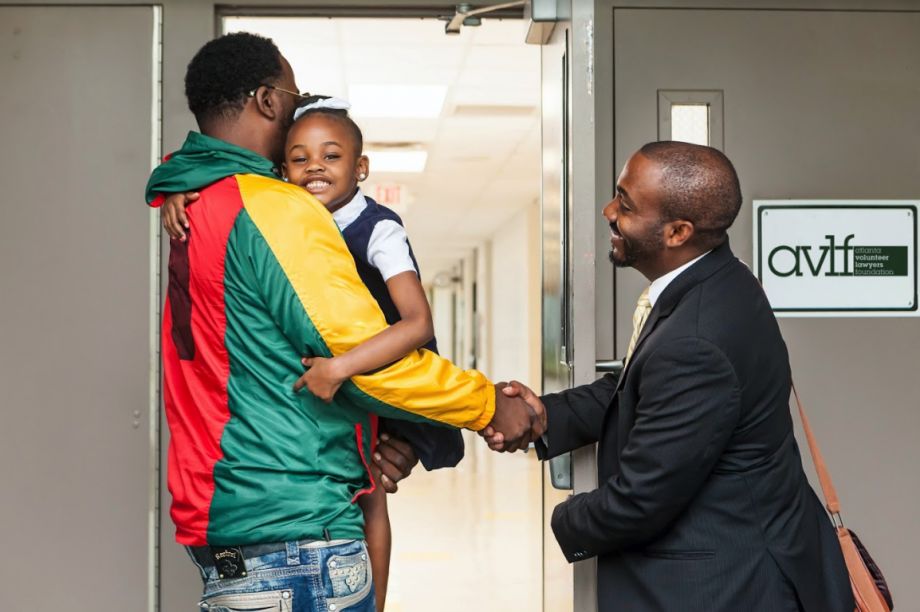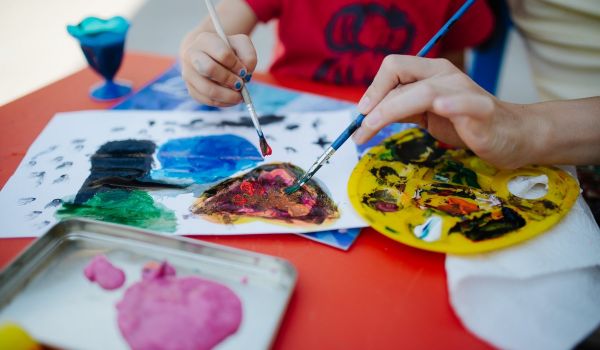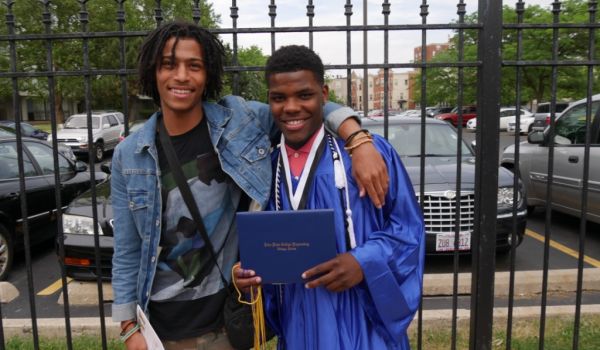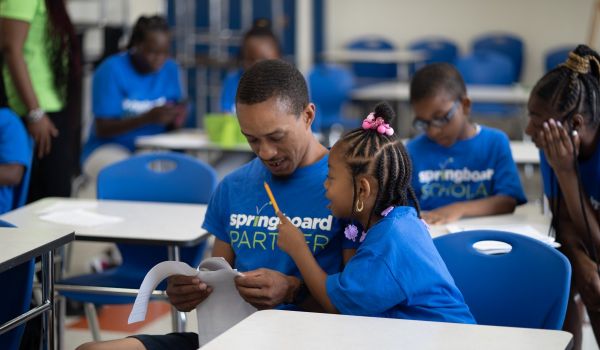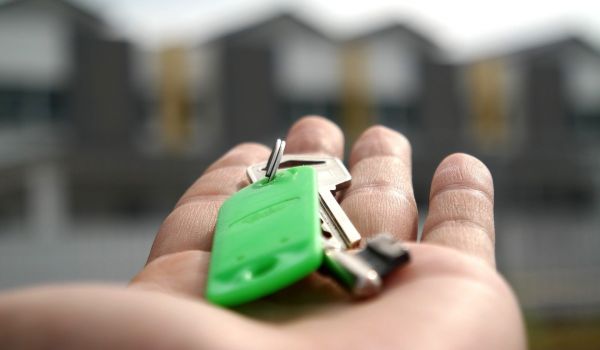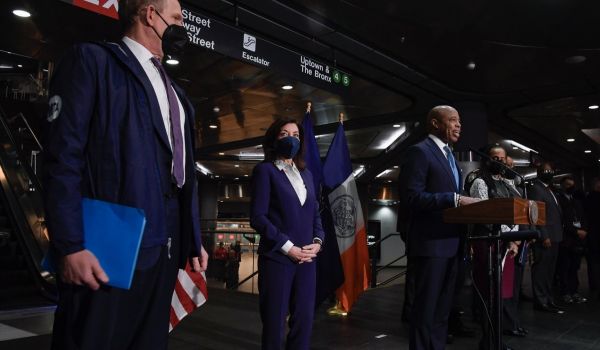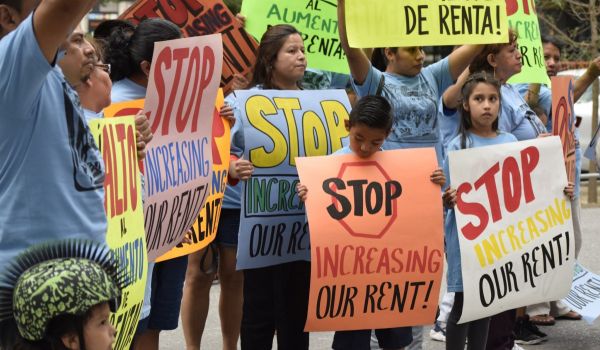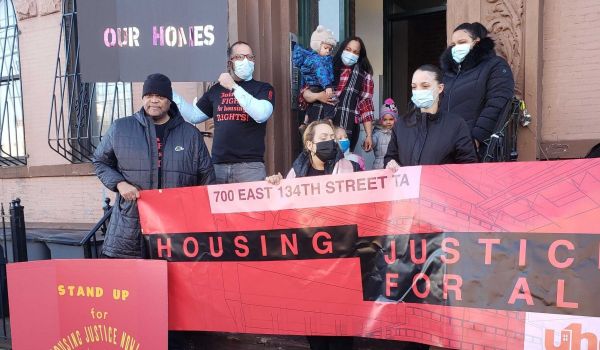Vera Wilson opened the door to her new apartment in Atlanta to find chaos.
The landlord had promised the apartment would be clean and remodeled in time for Wilson and her family to move there from New Orleans in October 2016, she says. But that hadn’t happened. The apartment smelled of cat urine. Cigarette butts were strewn on the carpet. The stove was left uncleaned. There were no smoke alarms. So they parked their moving truck, picked up cleaning supplies at a nearby Walmart and tidied up the best they could.
That marked only the start of Wilson’s troubles with the apartment. Not only did the remodel never happen, but Wilson lacked air conditioning in the summer and heating in the winter. Rats lived in the apartment. The complex lost water twice.
But Wilson couldn’t afford to move.
“We had no choice but to stay there and fight,” she says. “I was like, ‘I’m a New Yorker. I’m not going to let them get away with this.’”
But luckily, Wilson’s grandchildren — who lived with her on and off — attended Hollis Innovation Academy in Atlanta’s Westside. She got the legal help she needed through a program that places lawyers at Atlanta public schools in order to help with housing issues.
Standing with Our Neighbors, run by Atlanta Volunteer Lawyers Foundation (AVLF), started at its first school in 2016. The foundation has a long-running eviction defense program, but people need to come to the nonprofit’s office in downtown Atlanta to use it. When the AVLF team learned that kids weren’t always performing well in school because of evictions, unhealthy living situations and frequent moving, they looked for a way to meet people where they live.
“Kids not being in their seat all year long means that they can’t learn,” says Ayanna Jones-Lightsy, co-director of AVLF’s Safe and Stable Homes Project, the foundation’s main housing and finance project.
A total of three lawyers and five community advocates now keep on-site office hours at eight schools where AVLF runs Standing with Our Neighbors and help families of students, as well as school staff. The lawyers do some of the legal work and also partner with law firms that provide pro bono services.
The aim is to not only prevent evictions but also to ensure that housing is healthy.
The program’s schools are located in Atlanta neighborhoods with high eviction rates. Some are also in areas that will eventually have the Atlanta BeltLine, a multiuse path around Atlanta’s center that has catalyzed high-end development and rising housing costs.
Jones-Lightsy says families often live with mold because of the South’s high humidity, as well as rodent and insect infestation and lack of air conditioning. All of these factors can trigger asthma, which leads to more emergency room visits and missed days of school.
“You can’t breathe, you can’t sleep, you can’t function,” she says. “If we can get these issues addressed, then the idea is that there’ll be less absenteeism or tardy-ism because if the family has to go to the emergency room in the middle of the night, the next day, the chance of them all getting up to go to school is a lot less likely.”
From July 2016 to April 2019, the volunteer lawyers identified 533 children who had asthma-related housing issues in the Standing with Our Neighbors program.
As families grapple with tenant issues, such as landlords who don’t maintain housing and threaten to evict, the program’s community advocates try to help with day-to-day concerns as well. AVLF brought Vera Wilson bottled water when her complex’s water was shut off. She received blankets and heaters in the winter. AVLF also did mold and spore testing when the family started getting sick.
Wilson says Standing with Our Neighbors is important to help schoolchildren.
“Imagine a child that’s been cold all night because there’s no heat in the house,” she says. “It’s going to affect them, their performance during school hours.”
AVLF tries to take a holistic approach, helping to identify jobs, food pantries and education opportunities if someone is interested, says Shameka Love, AVLF’s community advocate on the Westside. The organization also holds events to educate people about their tenant and lease rights.
From July 2016 to April 2019, Standing with Our Neighbors helped 452 families, including 859 kids. AVLF has noted that in the schools that have lawyers available, kids are staying in school longer without moving and that eviction and displacement have decreased. At Hollis Innovation Academy, which three of Wilson’s grandsons attend, there was a 25 percent reduction in student exits during the 2017-2018 school year.
After almost two years in her apartment, Wilson moved in August 2018 to a newly built apartment, where she paid 30 percent of her income through a year-long program. That ended, and she moved to a new home a few weeks ago, paying the entire rent.
Wilson — along with fellow residents she introduced to AVLF — recently reached a settlement with her former apartment complex. It took two years of legal fighting.
Now that she lives in a healthy and stable place, it’s time to move forward. Wilson is starting her own business. She is eyeing a spot on the Westside, not far from Hollis Innovation Academy. She plans to open a cafe in 2020 with natural smoothies and juices.
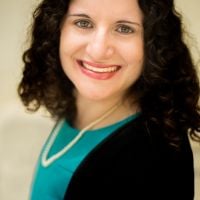
Adina Solomon is a freelance journalist based in Atlanta. She writes on a range of topics with specialties in city design, business and death. Her work has appeared in The Washington Post, CityLab, U.S. News & World Report, and other national and local outlets.

